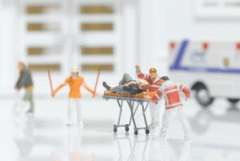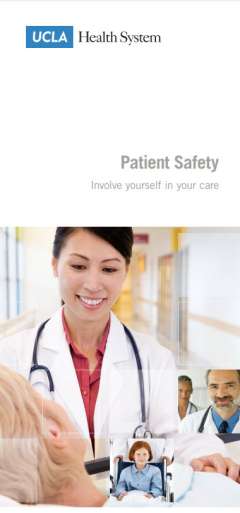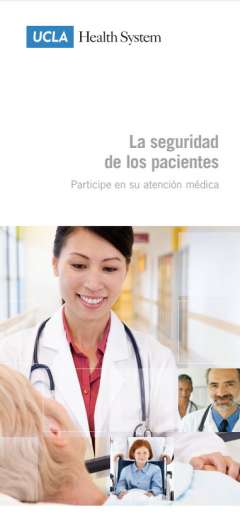Patient Safety Resources & Information
Involve yourself in your care
UCLA is dedicated to your personal well being. Accordingly, we have implemented key safety procedures and practices to reduce the possibility of safety errors. UCLA's Partnership in Safety Program alerts you to the common risks inherent in all hospitals and other healthcare settings, as well as simple tips to avoid or minimize those risks.
To fully maximize the effectiveness of these safeguards, we encourage you to partner with your healthcare team by following a few simple practices.
The Challenge of Hospital Safety: A Success Story (The Huffington Post)
Know your healthcare professionals
All hospital employees - doctors, nurses, medical residents and staff - must have photo identification prominently displayed. Know who is in charge of your care and the name of your team leader. This is particularly important when many people are involved in your treatment or when you have many health problems.
Make sure your healthcare providers know who you are
Your medical team may already know you, but they should routinely check your patient identification band or otherwise reconfirm your identity before examination or treatment.
Assign an advocate

Ask a family member or trusted friend to serve as advocate to protect your best interests, especially when you may distracted by the stress of illness. Tell your advocate your wishes regarding life support and resuscitation.
Most health professionals will tell you that hospitals can make you sick. From infections to medication errors, it's a constant risk for patients. But UCLA is taking the lead in training caregivers to first do no harm, making Ronald Reagan UCLA Medical Center one of the safest in the nation.
Stay informed
Always ask for test results. Do not assume no news is good news. Make sure you understand what the results mean for your care. If you need surgery, make sure that you and your doctor(s) agree on the planned procedure and the course of your care.
Recognize your medications
If the medications you are given do not look familiar, speak up and alert your doctor, nurse or pharmacist. Most likely, the medications will be the same, but it is good practice to double-check. Keep and bring a list of all the medications you take - including over-thecounter medicines - with you to the hospital and to your doctors' appointments.
Clean hands save lives
Speak up if your healthcare providers fail to clean their hands with either soap and water or a waterless cleaner before treating you. They will appreciate the reminder.
Advance directives
An advance directive is a written statement that expresses your wishes for medical treatment and indicates who you would want to make decisions for you in the event that you are unable to make decisions for yourself. If you have an advance directive or Physician Orders for Life-Sustaining Treatment (POLST), we would like to obtain a copy from you so that our healthcare team can understand your wishes. We will place the advance directive or POLST in your medical record to direct future care. Should you make revisions, please provide an updated copy to us for inclusion in your medical record.
Should a medical emergency occur in the outpatient setting, unless we have a copy of your advance directive or POLST indicating otherwise, we will initiate full emergency resuscitation measures and efficiently transport you to the hospital to be adequately evaluated and treated. Please inquire if you would like information on how to obtain an advance directive or POLST.
Download and Print our Brochure
Click on images below to download and print a brochure from a .pdf file.
Grievance filing
If you have a complaint, we encourage you to contact our Patient Affairs representatives, who are available to assist you in any way in working through your situation. Otherwise, you may file a complaint with either of these two agencies regardless of whether you choose to use the hospital's grievance process.
The Joint Commission
Fax complaint: 630-792-5636
Email complaint: [email protected]
You may also write to:
Office of Quality Monitoring
The Joint Commission
One Renaissance Boulevard
Oakbrook Terrace, IL 60181
The California Department of Public Health
Los Angeles District Office
3400 Aerojet Avenue, Suite 323
El Monte, CA 91731
626-569-3724 or toll free 800-228-1019
Thank you for joining our partnership
If anything seems unsafe about your care or care environment, or if you identify something that we can improve, please let your nurse know or contact us at the following:
Ronald Reagan UCLA Medical Center
Patient Affairs 310-267-9113 x79113
Resnick Neuropsychiatric Hospital at UCLA
Ombudsperson 310-267-9092 x79092
UCLA Santa Monica Medical Center
Patient Affairs 310-319-4670 x94670

